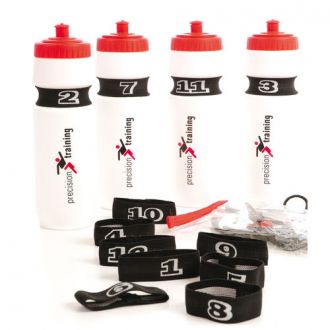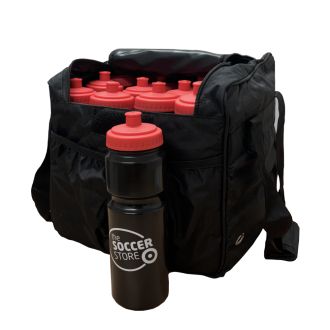How to Keep Your Energy Levels High Throughout a 90-Minute Football Match
How many times have you been at the wrong end of a last-minute sucker punch that lost you a game of football? Late goals are more common than you think, and more often than not they are a result of tiredness. In order to fulfil your potential as a footballer, you need to be able to perform at your best for an entire match, and there are several things you can do to ensure that happens.
Get lots of rest the day before a game
The day before a match should be used to rest and preserve your energy. If you go for a long run or take part in a strenuous training session, you will burn precious energy that can be used during a match. Any good coach will insist on using the day before a match to work on tactical issues and gentle exercise. You should restrict any physical activity to low-intensity workouts that won’t deplete precious energy stores.
Eat a carb-rich meal the evening before a match
Carbohydrates are the body’s preferred source of energy, so it makes sense to give your body what it needs during the hours before a big game. Eating complex carbs helps to build up stores of glycogen, which the body goes to first when it needs fuel.
But it is important to differentiate between complex carbs and refined carbs. Foods such as white bread and white pasta will give you short, sharp bursts of energy, but they won’t give you the slow-burn kind of energy you will need to complete a 90-minute football match. Instead, eat plenty of whole wheat pasta, sweet potatoes, fruit and vegetables during the hours before a game.
Always eat breakfast on match day
Although breakfast is the most important meal of the day, it is the meal that the majority of people are most likely to skip. Whether you feel like eating it or not, it is vital that you eat a breakfast rich in complex carbohydrates and protein before a game. Whole wheat toast with eggs, mackerel or porridge are excellent pre-match breakfast foods, as they will top up your energy reserves while leaving you feeling satisfied. Regardless of when in the day your match kicks off, eating a healthy breakfast is the best way to prepare your body for strenuous activity.
Prepare some snacks for the match
If you watch professional tennis on TV, you will often see a player eating a banana or cereal bar between games. They do this to replace energy quickly, and it is something you can do during half-time. You might also want to think about eating a very quick snack an hour or so before the game. Bananas and cereal bars are ideal, but whole wheat crackers, low-fat cheese, fruit and yoghurt are also great snacks for topping up your energy reserves.
Drink water!
A normal, sedentary human requires 1.5 litres of water every day to function normally. However, as an athlete, you require a lot more. And during the rigours of a football match, you will need to be constantly topping up your hydration levels. One of the main symptoms of dehydration is a loss of energy, which is why you need to take every opportunity to sip on water. Use stoppages to take a quick mouthful, and make sure your water bottles are full and positioned where you can access them quickly.
Use energy drinks
Opinion is often divided amongst coaches and nutritionists about the merits of sports drinks. Energy drinks are designed to rehydrate and re-energise athletes during or just after rigorous exercise. They are laden with carbohydrates to provide energy, and electrolytes to accelerate rehydration. Used sparingly and at the right time, these drinks can provide very quick benefits - which makes them ideal for mid-match refuelling. If you’re concerned about the calories involved, switch to a low-calorie, no-sugar energy drink.
If you are conditioned and fit, these energy building strategies should ensure that you play at the top of your game for a full 90 minutes.



